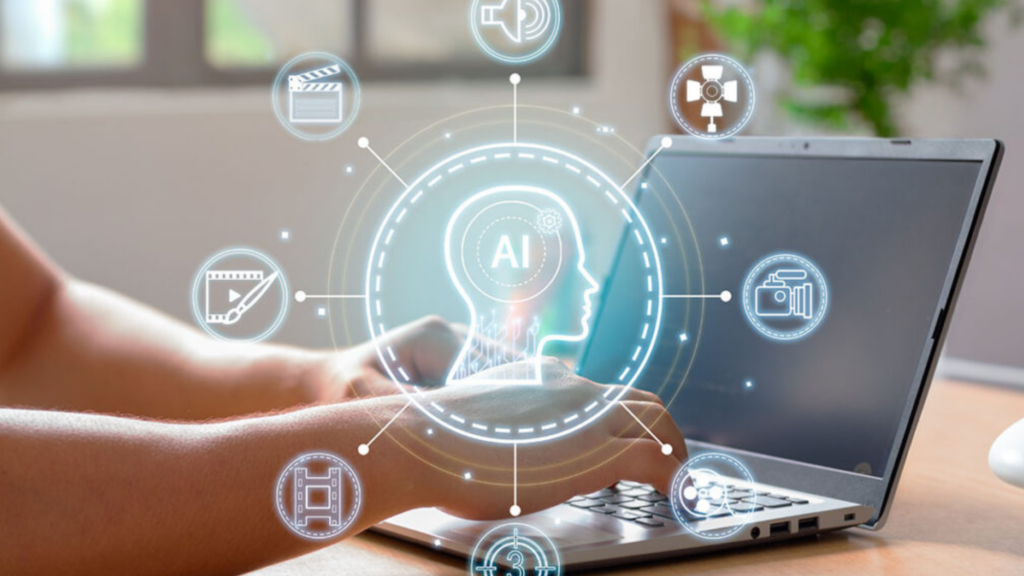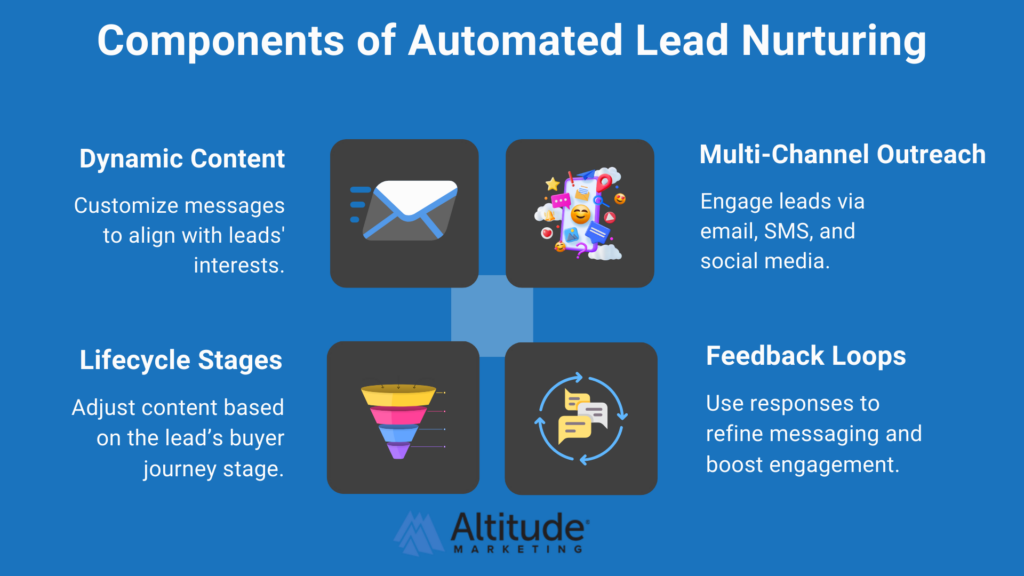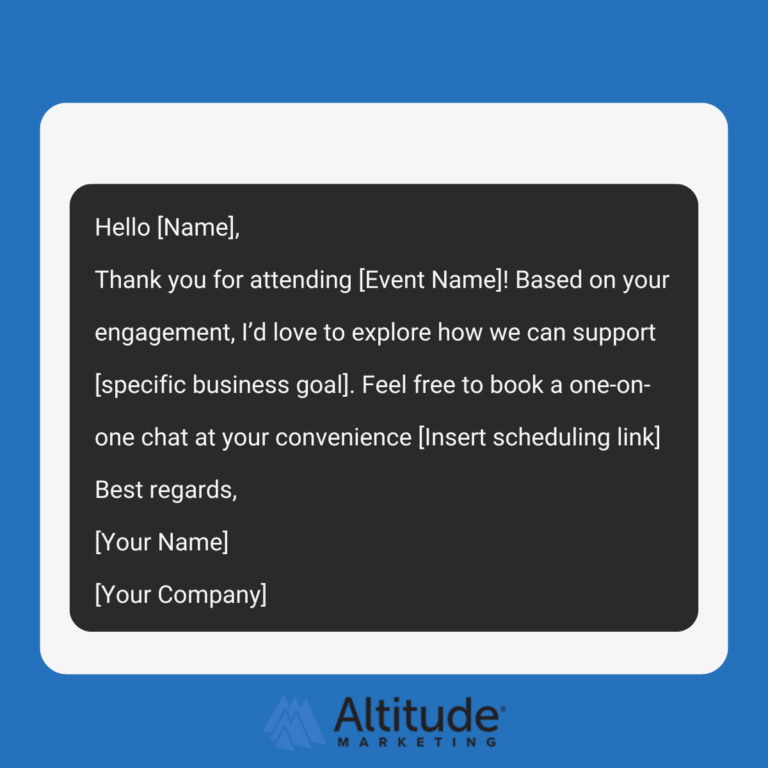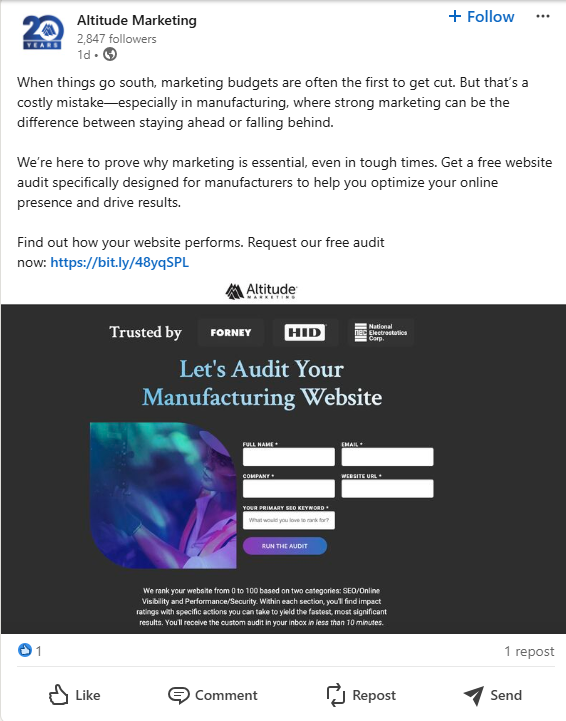AI has moved from being a trending topic to a critical tool for marketers looking to increase efficiency and drive meaningful engagement. By automating routine tasks and delivering hyper-personalized experiences, businesses can focus on strategy and growth.
In fact, 95% of businesses already use or plan to adopt AI before 2025, making it a key pillar of modern marketing strategies. With this widespread adoption, it’s clear that AI is reshaping the way businesses approach marketing. Ready to see how AI can transform your marketing efforts? Let’s explore expert tips that are making a real difference.

10 Expert Tips for Leveraging AI in B2B Marketing
1. Use AI for Content Generation
AI tools have redefined content creation by streamlining the process from ideation to publication. Marketers can now generate high-quality drafts, refine messaging, and publish content across multiple platforms in a fraction of the time it once took. With AI’s assistance, businesses can maintain a consistent and engaging content pipeline while freeing up time to focus on creative strategy.
Streamline Drafting and Brainstorming
AI platforms like ChatGPT and Jasper offer quick topic ideas, content outlines, and even full drafts. This automation enables marketers to jump-start content creation with minimal effort. Whether it’s email campaigns, blog posts, or product descriptions, AI tools reduce the time spent on initial drafts and revisions.
Additional Uses for AI-Powered Content Drafting:
- Generate multiple variations of headlines or subject lines to A/B test.
- Refine language and tone to match brand voice.
Adapt Content for Multiple Platforms
AI ensures that the same content can be easily adapted across different channels. Long-form articles can be summarized into concise LinkedIn posts, while a product announcement can be reformatted as a Twitter thread or email newsletter.
- Automated Formatting: AI adjusts content length and tone based on platform requirements.
- Multilingual Support: Translate content for global audiences using AI without compromising quality.
By integrating AI into content generation workflows, businesses can speed up production, improve consistency, and effortlessly create platform-specific content to engage diverse audiences.
2. Repurpose Content Efficiently with AI
Repurposing content is a powerful strategy to extend the reach of your marketing efforts without creating new material from scratch. AI tools automate the transformation of long-form content, like webinars or white papers, into smaller, bite-sized pieces tailored for different platforms. This makes it easy to keep your audience engaged across channels without additional workload.
Turn Long-Form Content into Multiple Formats
AI tools simplify the process of breaking comprehensive materials into smaller, targeted pieces. For instance, a webinar can be converted into a blog summary, infographic, or multiple video snippets for social media. This allows businesses to extract the full value from a single piece of content, enhancing its visibility and lifespan.
- Social Snippets and Email Campaigns: AI tools like Goldcast help extract key points from event recordings, converting them into posts for social platforms or personalized newsletters.
- Platform Optimization: AI ensures each version of repurposed content fits the needs of the platform, such as concise posts for Twitter or visual media for Instagram.
Schedule and Publish Consistently Across Channels
AI-powered scheduling platforms determine the best times to post content for maximum engagement. By automating distribution, businesses ensure their content reaches the right audience at the right time, increasing visibility without manual intervention.
3. AI-Powered Personalization
In B2B marketing, personalization plays a key role in building meaningful connections, and AI makes it more effective. By analyzing customer behavior, preferences, and past interactions, AI helps businesses deliver relevant content at the right time. Personalized emails, product recommendations, and tailored website interactions ensure that every engagement feels useful and aligned with individual needs.
Automate Customer Segmentation
AI tools automatically group audiences based on behavior, interests, and engagement history. This allows marketers to deliver targeted content to specific groups, such as new leads, repeat customers, or inactive users, without manual effort.
- Smart Segmentation: AI organizes customers into precise segments based on behavioral patterns.
- Targeted Messaging: Modify emails or ads to suit different audience groups for better engagement.
Create Responsive Experiences
AI enables businesses to adjust content in real-time, responding to user actions as they happen. For example, product recommendations shift based on browsing behavior, and chatbots guide visitors with personalized suggestions. These timely interactions keep customers engaged and increase the chances of conversion.
By combining automated segmentation with responsive interactions, AI-powered personalization helps businesses engage customers more effectively, strengthen relationships, and drive higher conversion rates.
To provide a clearer view of the various tools available, here’s a summary of key AI applications in B2B marketing:
AI Tool | Application |
Chatbots | Customer support and engagement |
Content Generation Tools | Automating content creation |
Predictive Analytics Platforms | Forecasting customer behavior |
Lead Scoring Software | Automating lead evaluation |
Email Automation Tools | Streamlining email marketing campaigns |
Social Media Analytics | Analyzing engagement and trends |
CRM Systems with AI | Enhancing customer relationship management |
Personalization Engines | Tailoring content to user preferences |
Sentiment Analysis Tools | Monitoring customer feedback and sentiment |
Data Visualization Tools | Visualizing marketing data for insights |
This overview of AI tools highlights the diverse options available to enhance your B2B marketing efforts, setting the stage for more effective strategies and customer engagement.
4. Predictive Analytics for Better Targeting
Predictive analytics helps marketers make smarter decisions by using historical data to anticipate customer behavior. AI tools find hidden patterns – like when a lead might convert or when a customer is losing interest, thereby allowing teams to adjust their strategies proactively.
Insights for Marketing Success
These predictive models tap into data from CRM systems, email interactions, and web analytics, revealing valuable behaviors and trends.
- Data Consolidation: AI combines insights from multiple sources for a well-rounded view of the customer journey.
- Behavior Patterns: Spot actions (like product page visits) that signal strong buying intent.
- Early Warnings: Identify when a customer might disengage, enabling teams to reach out before it’s too late.
Putting Insights into Action
Marketers can use these insights to tweak live campaigns and make a real impact.
- Adaptive Messaging: Change up content or offers on the fly based on fresh data.
- Better Testing: Refine A/B tests with predictive insights, so you know what will resonate.
By using predictive analytics, businesses can shift from reacting to anticipating, leading to more successful campaigns that truly connect with their audience.
5. AI-Driven Lead Scoring
Traditional lead scoring can be tedious and often misses the mark. AI simplifies this by automating the evaluation of leads, using data points such as engagement metrics, demographics, and behavior.
Streamlining the Scoring Process
With platforms like Salesforce Pardot and Drift, AI analyzes multiple variables to rank leads. This ensures that sales teams concentrate on the most promising opportunities, reducing time spent on less likely prospects.
Enhancing Lead Qualification
By automating lead scoring, AI accelerates the qualification process, allowing teams to respond to high-potential leads swiftly. This efficiency not only saves time but also improves the likelihood of conversion.
Boosting Conversion Rates
AI-driven lead scoring leads to better targeting of marketing efforts. By focusing on leads that show real potential, businesses can significantly enhance their overall conversion rates, making sales processes more effective and profitable.
As organizations continue to adopt AI, the potential for improved lead management and conversion strategies will only grow.
6. Automated Lead Nurturing
Nurturing leads with relevant content throughout their buyer journey is crucial in B2B marketing. AI tools can automate lead nurturing campaigns by triggering emails or messages based on customer behavior, interests, or their stage in the sales funnel.
How Automation Works
Automation begins by capturing data on leads through interactions, such as email opens, website visits, and content downloads. This information feeds into AI-driven systems, which categorize leads based on their engagement levels and preferences.
Components of Automated Lead Nurturing

By using automated lead nurturing, businesses can create a more responsive and engaging experience for their leads, ultimately guiding them more effectively toward conversion.
7. Conversational AI for Sales and Support
Conversational AI is becoming a game-changer for B2B businesses. AI chatbots, such as those offered by Drift, engage website visitors in real-time, answering questions, guiding them through the buying process, and qualifying them as leads.
Transforming Customer Interactions
These chatbots leverage natural language processing (NLP) to deliver human-like interactions. They can understand context, interpret user intent, and provide relevant responses, making conversations feel more natural. This capability allows them to handle a variety of customer inquiries – from simple FAQs to more complex product questions.
Streamlining the Sales Process
By integrating with CRM systems, conversational AI can gather data about customer interactions and preferences. This information helps sales teams better understand leads and tailor their outreach. Furthermore, chatbots can operate 24/7, ensuring that customers receive assistance whenever they need it, regardless of time zones or business hours.
As B2B companies increasingly adopt conversational AI, they not only enhance customer engagement but also allow human resources to focus on more complex tasks, ultimately improving overall efficiency and productivity.
8. AI for Omnichannel Customer Experiences
With customers hopping between emails, social media, and webinars, it’s more important than ever for businesses to deliver a smooth and personalized experience. AI steps in to ensure you’re not just throwing messages into the void but truly connecting with your audience.
Many tools analyze customer interactions across these channels and tailor messages accordingly, which boosts engagement and fosters brand loyalty.
Crafting a Unified Experience Across Channels
- Bringing It All Together: AI combines data from different platforms to give a full view of customer interactions.
- Staying on Brand: Consistent messaging keeps your brand recognizable, no matter the channel.
- Flexibility in Communication: AI adapts to new channels as they pop up, ensuring you stay current.
- Understanding Customer Journeys: Mapping interactions helps personalize experiences and keep customers engaged.
Making Engagement Personal
- Tailoring Content: AI delivers the right content based on what customers have shown interest in.
- Learning from Interactions: It analyzes past behavior to refine how you communicate in the future.
- Dynamic Recommendations: AI suggests products or content that fit each customer’s unique preferences.
- Listening to Feedback: Customer input helps improve future interactions, making them feel valued.
9. Automating Event Follow-Ups
Events like webinars and virtual conferences can be fantastic for lead generation, but let’s face it – following up with attendees can feel like a daunting task. That’s where AI comes to the rescue!
It automates post-event follow-ups, ensuring attendees receive personalized emails based on their engagement, which not only saves you time but also boosts your chances of turning leads into loyal customers.
Simplifying Post-Event Connections
AI enhances post-event follow-ups by delivering quick, personalized responses and adjusting communication based on attendee interactions. This ensures messages remain relevant and engaging. Additionally, it segments the audience to tailor follow-ups according to engagement levels and automates scheduling for one-on-one meetings, making it easier to connect with interested attendees.
Personalizing Follow-Up Content
To boost follow-up effectiveness, AI shares relevant resources that align with attendees’ interests, reinforcing their engagement. It also invites feedback, making attendees feel valued and heard. By continuing the conversation beyond the event and providing personalized updates and offers, businesses can nurture relationships and foster long-term loyalty.

10. ROI Tracking and Campaign Optimization
Navigating the success of your marketing campaigns can feel like piecing together a complex puzzle, especially with so many channels at play. Enter AI tools, which help you track performance and provide insights into what’s really hitting the mark.
Platforms that offer AI-powered analytics enable marketers to fine-tune their strategies and allocate resources effectively.
Understanding What Works
- Performance at a Glance: Get quick insights into how well your campaigns are doing.
- Cross-Channel Insights: See how different platforms perform so you can tweak your approach.
- Looking Ahead: Predictive analytics help you anticipate future outcomes based on past data.
- Adjusting on the Fly: Real-time monitoring allows you to make immediate changes for better results.
Smart Strategies for Better ROI
- Investing Wisely: Identify which channels deliver the best bang for your buck.
- Content That Clicks: Find out which content types resonate most with your audience.
- Targeting Your Audience: Use demographic insights to refine who you’re reaching.
- Iterating for Success: Continuous data analysis helps you improve your campaigns over time.
By focusing on these smart strategies, you can maximize your ROI and create more effective marketing campaigns that drive growth and customer satisfaction.
Transform Your B2B Marketing with AI Today!
AI is changing how businesses connect with their customers, making it simpler to understand their needs and preferences. This shift not only boosts engagement but also leads to tangible results. By combining smart automation with personal interactions, your marketing can stand out in a crowded market. Start using AI now and see your business excel!
FAQs
How is AI used in B2B marketing?
AI streamlines B2B marketing by automating tasks, personalizing content, analyzing customer data, optimizing campaigns, and enhancing lead scoring, enabling businesses to engage more effectively and efficiently.
How is AI changing the B2B customer buying process?
AI improves the B2B buying process by providing personalized recommendations, predictive analytics for better decision-making, and automated communication, ensuring customers receive relevant information at the right time.
How does AI currently and will affect B2B selling currently and in the near future?
AI enhances B2B selling by automating lead management, predicting customer behavior, and personalizing outreach, leading to increased efficiency, improved relationships, and higher conversion rates in the future.
What is the best example of AI in marketing?
One of the best examples of AI in marketing is chatbots, which engage customers in real-time, providing instant support, answering queries, and improving user experience on websites.
How to use AI for marketing strategy?
To use AI for marketing strategy, analyze customer data for insights, automate content creation and distribution, personalize customer interactions, and leverage predictive analytics for informed decision-making.
Ready to elevate your B2B marketing?
We help leading business-to-business brands hit their marketing goals. Get in touch to learn how Altitude Marketing can help you reach your peak performance.




